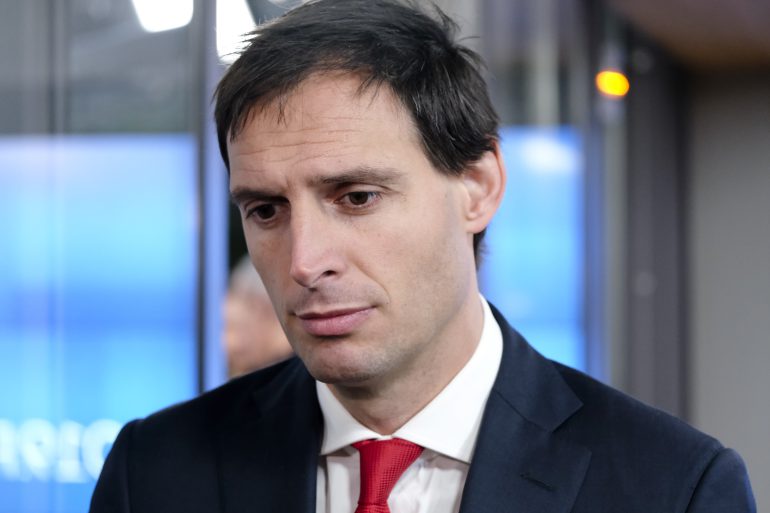The appointment of Wopke Hoekstra as the new European Commissioner for Climate has received approval from theEuropean Parliament, as anticipated. In total, 173 members of the European Parliament (MEP) voted against, 279 in favour, and 33 abstained. To be appointed, a simple majority of votes had to be obtained. Thus, the Environment Committee of the European Parliament officially authorized Hoekstra’s appointment, making him the successor of Frans Timmermans. Hoekstra’s appointment as the Climate Commissioner is initially for one year, with the possibility of extension for longer periods, given the European elections next June and the formation of a new European Commission.
Earlier in the process, the committee made things difficult for Hoekstra: despite a three-hour hearing, many membersremained unconvinced that Hoekstra, a CDA member, was the most suitable replacement for Timmermans, who left the post in order to lead the left-leaning GroenLinks-PvdA alliance in the upcoming Dutch elections. After receiving further answers to their queries, the environmental committee ultimately granted the go-ahead. Bas Eickhout, anMEP for GroenLinks who is on the environment committee, stated that the European Green Deal remains a toppriority for the European Commission.
Achieving set targets
By 2050, the European Union aims to achieve carbon neutrality. This implies that no greenhouse gas emissions will be released and compensation will be made for any emissions that may exist. That’s a significant effort, but Heleen de Coninck, a TU Eindhoven professor studying climate change, says it is doable. Policies in Europe currently andin the future are already aligned with this goal.
Hoekstra plans to prepare for the climate summit in Dubai in December, with a focus on global kerosene, maritime and fossil fuel taxes. He also aims to reduce the EU’s CO2 emissions by 90% by 2040. European legislation exempts both kerosene and fuel oil from levies, a practice that Hoekstra noted was ‘bizarre’. The United Nations Aviation Organization, the International Civil Aviation Organization (ICAO) and the International MaritimeOrganization (IMO) play a role in deciding taxes on kerosene and fuel oil, making taxing both a major challenge.Negotiations with these organizations have been unsuccessful, but it is necessary to tax aviation to achieve climategoals. De Coninck believes that Hoekstra’s negotiating skills may help implement these levies. Hoekstra himself stated: ‘We owe this to the current, but certainly also the next generations.’ He speaks of a ‘big task that we can only do together’.
European Commissioner Hoekstra’s term may not allow for quick solutions, according to PwC chief economist JanWillem Velthuijsen, who believes levies on fuel oil and kerosene are not feasible. He notes: ‘It is a good idea, butdifficult to implement. We already have all kinds of agreements globally. It requires diplomacy to get other regions on board with new plans. All kinds of treaties need to be revised.’
The EU Emissions Trading System (ETS) is crucial in reducing European emissions, particularly in heavy industry. The EU sets the number of CO2 certificates distributed, decreasing annually to decrease emissions. By 2040, no new rights will be issued.
Companies that produce in a sustainable way can sell certificates to polluting ones, providing financial incentives for sustainable production.
The European Scientific Climate Council member and KNMI chief director Maarten van Aalst emphasises the urgency of achieving European climate goals by 2050, despite the political hurdles.
Differing views
Before his appointment, the European Christian Democrats saw Hoekstra as a tool for undermining European climate objectives. Hoekstra’s appointment was delayed due to a political battle over the speed of the EU’s climate ambitions. Elections for the European Parliament next June will focus on the speed of these changes and the economic challenges caused by the change to a sustainable future. The Christian Democrats are concerned aboutthe rapid changes made, while the Social Democrats and Greens aim to fulfill the existing ambitions. Hoekstra, who relied on the support of these parties for votes, exhibited his greenest side during the recent hearing. Some ChristianDemocrats think that Hoekstra has made far too many commitments, while the Greens are very happy with his statements.
Written by Nicole Bea Kerr
